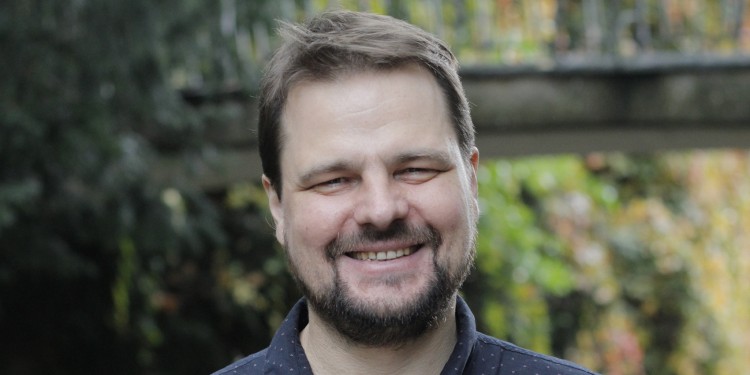
“Debates on restrictions are old”
One special form of freedom is academic freedom in the arts and sciences, as laid down in Article 5, Section 2 of Germany’s Basic Law. The first sentence states: “Arts and sciences, research and teaching are free.” In this interview with André Bednarz, Dr. Markus Seidel, who works at the Centre for the Philosophy of Science at the University of Münster, explains this special freedom, which is enormously important for universities.
Academic freedom is freedom in the arts and sciences. That sounds self-explanatory and understandable. Or do you have a different definition?
No. The main reason is that it’s by no means easy to provide definitions of academia and freedom. However, we can try to flesh out this special idea of freedom by stating some differentiations. On the one hand, a distinction should be made between teaching and research. Not because I think the two can be clearly separated, but because the justifications for, and limitations of, freedom in teaching and research can differ from one another.
That sounds a bit artificial ...
Not at all. Academic freedom in the form of teaching is perhaps a special manifestation of freedom of opinion. As far as research is concerned, this is not the case. Another thing is that it makes sense to distinguish between the freedom of means and the freedom of objectives. Debates about freedom in the arts and sciences include discussions about whether researchers should have the freedom to set their objectives themselves – and, if so, which ones – and about what means for reaching these objectives should be freely chosen by the researcher. Ultimately, this distinction affects important questions concerning the relationship between research and society: should researchers define their objectives not only by academic relevance, but also by their relevance for society? What means are appropriate not only for methodological reasons but also, for example, for moral reasons? On the basis of such distinctions, it’s easier to get closer to the idea of academic freedom without being able to provide a definition.
The struggle for freedom in the arts and sciences goes back many centuries – to a time when churches and the aristocracy had a big influence on thinking. How important is the defence of this academic freedom in a liberal democracy?
On the one hand, this freedom is justified epistemologically by the fact that arts and sciences which are free have the best chances of arriving at assured knowledge. On the other hand – and your question makes this clear – there are political reasons for freedom in the arts and sciences. The reason is that political decisions require factual knowledge. For example: what the appropriate political reactions to climate change are, depends primarily on what its causes are. And the credibility of climate researchers – who basically agree on the causes of climate change being man-made – would be severely damaged if it should turn out that they were not free of political influence. An open political debate on appropriate solutions – this is the basic thought behind it – requires the population to be as well informed as possible. Only arts and sciences that are free of political and economic influence can provide this information. How topical this thought is, becomes clear when we just think of the idea of ‘fake news’.
What is the state of academic freedom in the arts and sciences nationally and internationally?
You can’t generalise. Over the past few years some people have identified a so-called cancel culture at universities which, they say, is placing dangerous restrictions on academic freedom on the basis of a misconceived sense of consideration for other people – so-called wokeness. Ultimately, it’s an empirical question whether a general trend can be observed or whether these are isolated cases, if at all. However, as there is only anecdotal evidence so far, we should neither draw general conclusions nor simply dismiss any concerns. One thing can be said, though: debates on whether restrictions on academic freedom exist or are legitimate are as old as the term itself. And it’s not helpful to treat academic freedom as something sacred which must not be subjected to any restrictions. There cannot be any absolute academic freedom. Rather, as part of a discussion on every specific case we should be sure of what we understand by academic freedom, and which restrictions are legitimate – and which are not.
